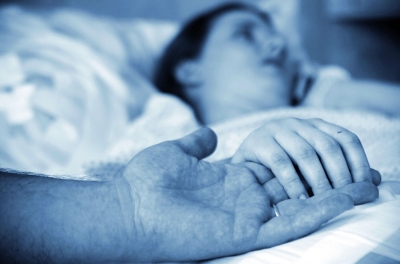Marie Curie calls for 'round the clock' care for terminally ill

A UK-wide survey of 1,000 GPs by the charity has revealed that most believe their patients’ pain is not relieved one hundred per cent of the time. It also highlighted family doctors’ concerns about supporting patients being cared for at home. Only 39% of GPs think their terminally ill patients get adequate access to care at night and at weekends; and a third do not believe their terminally ill patients get adequate access to specialist palliative care nursing.
GPs were also asked what factors they believe reduce the quality of pain control. Three out of five highlighted a lack of anticipatory prescribing; over half expressed concern about over-prescription of medication; and 39% considered poor availability of pain relief out of hours.
The issue of round the clock care was also highlighted in a new report released by Marie Curie in conjunction with the survey, called ‘Difficult Conversations with Dying People and their Families’. Issues highlighted in the report include families having to chase up prescriptions; nurses waiting hours for vital drugs to arrive; and locums who are unable to prescribe.
Imelda Redmond, Director of Policy and Public Affairs at Marie Curie, said: “Everyone is telling us – from GPs, families and carers – that more needs to be done to improve access to specialist palliative care and pain control at home.
“We know that effective pain management at home is an important factor that influences whether someone has a 'good death', and we only have one chance to get it right.
“Terminally ill people and their families need timely access to care and pain relief around the clock. At the moment two thirds of this time is considered to be ‘out of hours’ by the healthcare system. With only 17% of terminally people at home having their pain relieved completely, it is vital that healthcare professionals are available to terminally ill people around the clock and that they are equipped to provide pain relief."
Simon Chapman, Director of Public and Parliamentary Engagement at Dying Matters and the National Council for Palliative Care, commented: "The way we care for dying people is a litmus test for the kind of society we are and for our health and care services. That's why it's essential that people have around the clock access to pain relief and symptom control when they are dying at home. Unless they do, there is a huge risk they will be rushed into hospital as an emergency admission, which is not what they or anybody else wants and is very distressing.
"We must get rid of this concept of "out of hours" services. If we are putting the needs of dying people first we would be talking about making sure they have the care and support they need at any hour or day of the week. 'Out of hours' is completely provider-centric. Whose hours are you talking about? Certainly not the person who is dying."
Imelda Redmond added: “Terminally ill people should not be spending their last precious weeks and days with the families in unnecessary pain because the system moves too slowly. This is why we are calling on clinical commissioning groups to do more to ensure that 24/7 care is universally accessible for all terminally ill people and their families, no matter where they live in the country."
More
- "We need to get rid of this notion of 'out of hours' services." NCPC and Dying Matters Director of Public and Parliamentary Engagement Simon Chapman speaks to Radio 5 (starts 58 seconds).
- Dying Matters offers training resources for GPs to improve their confidence in initiating and developing end of life care conversations with patients. Find out more.
- Read the full report
- For more information visit www.mariecurie.org.uk
Share your story
A central part of NCPC's work is listening to what people with personal experience of palliative and end of life care have to say. Please help us by sharing your story.